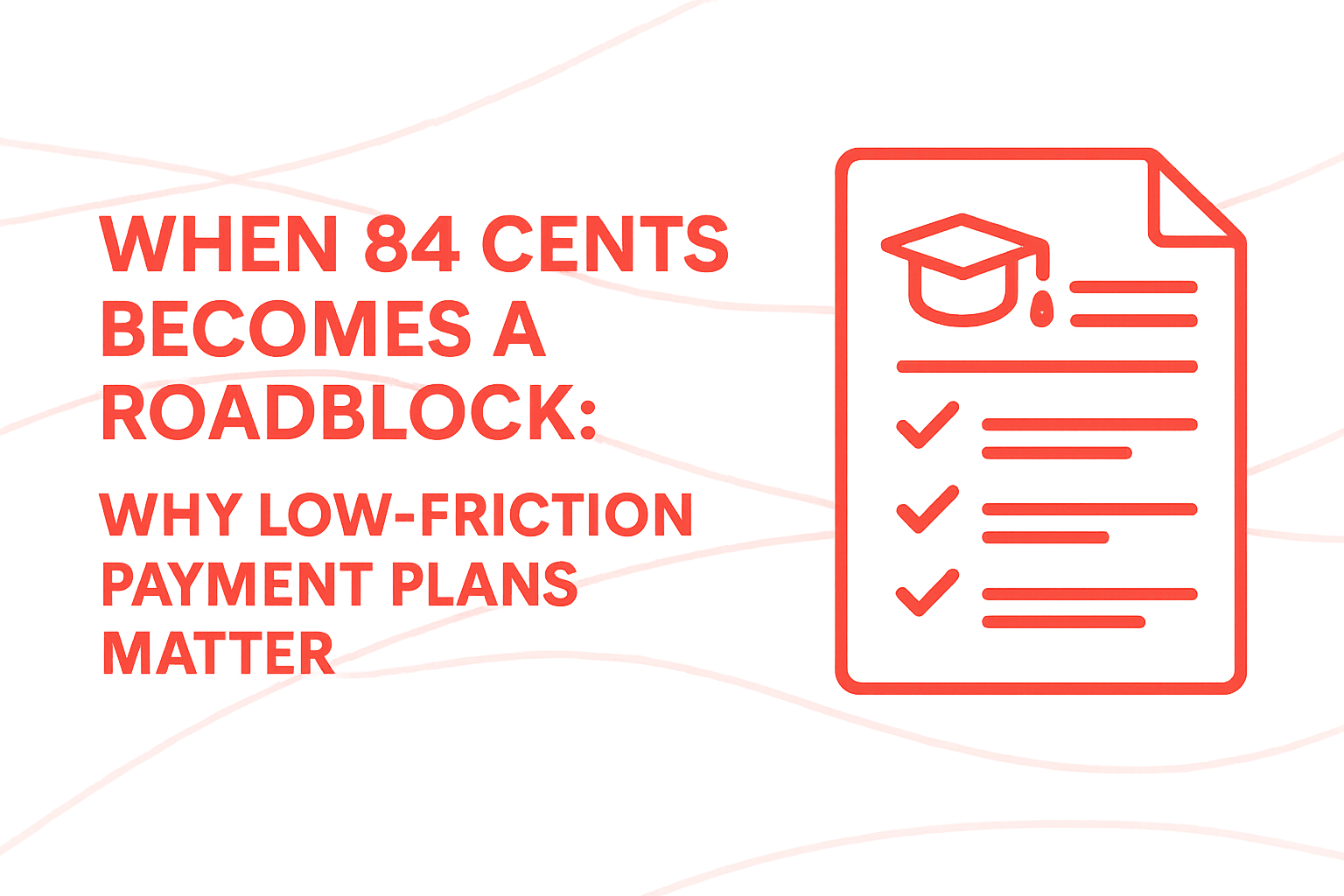When 84 Cents Becomes a Roadblock: Why Low-Friction Payment Plans Matter

Imagine being a student who owes just $0.84 in tuition and fees — less than a dollar — and having to wait to set up a payment plan for the next term until you first make a separate transaction to pay off that balance. That’s the kind of roadblock students can face when their institution’s tuition payment provider doesn’t offer rollovers for past-due amounts.
Most payment providers aren’t looking out for students or proactively working with schools to maximize the number of students who can pay in flexible, sustainable ways. Instead, they tend to apply rigid rules — like “if you have a past-due balance, you don’t get a payment plan” — with zero flexibility for students or institutions.
At Meadow, we’ve taken a different approach. We’ve built flexibility into our platform so schools can make smarter, student-first choices that remove unnecessary friction while maintaining control over their policies.
Why Small Friction Points Create Big Problems
Seemingly minor obstacles — like a separate transaction for 84 cents — can create ripple effects:
- They discourage responsible behavior. Students who hit roadblocks are less likely to set up payment plans, which reduces the chances they’ll pay on time.
- They add stress and confusion. Extra steps and rigid rules create the perception that paying for school is complicated — especially for students without strong financial literacy or from disadvantaged backgrounds.
- They waste time and money. Even tiny balances create real administrative costs for institutions. Processing a 60-cent ACH fee on an 84-cent payment is inefficient and frustrating for everyone.
While these friction points may seem minor, conventional wisdom says the more steps there are, the less likely someone is to complete the action. Friction in the payment process can be the difference between students paying on time or deferring action — and between schools collecting tuition efficiently or leaving balances unresolved.
Flexibility Drives On-Time Payments and Retention
Some payment providers offer a version of this functionality, but often without the flexibility schools need. Meadow’s platform empowers schools to set their own past-due “thresholds” so they can accommodate students’ needs without losing control. Whether a school wants to allow the rollover of balances of pennies, $50, or $500, the power to decide is in their hands.
By focusing on reducing friction with clear, intuitive features, Meadow helps students make confident, timely payment decisions — and helps schools improve both collections and retention. Because supporting students shouldn’t come down to rigid rules or 84 cents.
Ready to get started?
Get in touch with our team today.
.avif)

